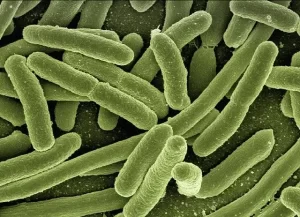The latest paper from the father of CAR-T: Discovering new targets…..
- Did Cloud Seeding Unleash a Deluge in Dubai?
- Scientists Identify Gut Bacteria and Metabolites that Lower Diabetes Risk
- OpenAI’s Model Matches Doctors in Assessing Eye Conditions
- UK: A Smoke-Free Generation by Banning Sales to Those Born After 2009
- Deadly Mutation: A New Monkeypox Variant Emerges in the DRC
- EPA Announces First-Ever Regulation for “Forever Chemicals” in Drinking Water
The latest paper from the father of CAR-T: Discovering new targets…..
- Red Yeast Rice Scare Grips Japan: Over 114 Hospitalized and 5 Deaths
- Long COVID Brain Fog: Blood-Brain Barrier Damage and Persistent Inflammation
- FDA has mandated a top-level black box warning for all marketed CAR-T therapies
- Can people with high blood pressure eat peanuts?
- What is the difference between dopamine and dobutamine?
- How long can the patient live after heart stent surgery?
The latest paper from the father of CAR-T: Discovering new targets to help CAR-T conquer solid tumors.
The rise of cancer immunotherapy has brought new hope to the majority of cancer patients.
Among them, CAR-T cell therapy has proven to be a powerful weapon against blood cancers, but they are much less effective against solid tumors, partly because of a process called T cell exhaustion .
However, to a large extent, scientists are not sufficiently aware of the process of T cell exhaustion, and more molecular details still need to be further elucidated.
Recently, the Carl June team of the Pennsylvania School of Medicine published a research paper titled: An NK-like CAR T cell transition in CAR T cell dysfunction in the top international academic journal Cell .
This study is based on a new research model to comprehensively analyze the failure process of CAR-T cells used to attack pancreatic tumors. They observed that the CAR-T cell failure process in the model is very similar to the patient’s T cells. The model also found that two genetic regulators, ID3 and SOX4 , play an important role in the process of T cell failure, and silencing them will extend the effect time of CAR-T cells.


Professor Carl June
CAR-T cells are the natural anti-infection and anti-cancer immune cell T cells from the patient’s blood for genetic reprogramming in vitro.
This reprogramming changes the patient’s T cells so that they can recognize cancer cells in the patient’s body. Antigen markers. Subsequently, cell culture technology is used to expand these CAR-T cells and reinject them into patients to attack cancer.
Since 2017, CAR-T technology has been approved by the US FDA for the treatment of certain lymphomas and leukemias. What is exciting is that in many cases, CAR-T cells also have a good therapeutic effect when these cancers are at an advanced stage, and even completely cure cancer patients.
However, when T cells are exposed to the target antigen for too long (approximately a few weeks) , T cell failure will occur .
It is also due to the existence of T cell exhaustion that CAR-T cells are not so effective against cancers formed by solid tumors.
This phenomenon is considered to be an evolutionary mechanism that can prevent these powerful immune cells from causing too much damage to the body. Collateral damage.
 CAR-T cell function gradually becomes exhausted during the process of receiving antigen stimulation
CAR-T cell function gradually becomes exhausted during the process of receiving antigen stimulation
In this new study, the researchers developed a T cell failure model in a laboratory environment in order to study it in more depth, hoping to find a way to reverse it. They combined CAR-T cells with a cell marker called mesothelin (found on the surface of the pancreas and some other tumors) , and contacted the T cells with mesothelin-expressing pancreatic tumor cells for four weeks.

In the T cell failure model, CAR-T cells are transformed into NK-like cells
The response of T cells is typical signs of exhaustion, but there are also signs that were not obvious in previous studies.
These new exhaustion phenomena include changes in the identity of some T cells, so that they partially revert to a type of immune cell-NK cells, which are considered distant relatives of T cells.
Correspondingly, the research team also found the same signs of T cells turning into NK cells in the exhausted CAR-T cells of cancer patients.

Transcriptional dynamics of dysfunctional CAR-T cells
More importantly, the research team also observed that CAR-T cell failure was accompanied by a surge in the levels of two proteins, ID3 and SOX4 , which are the master switches of a large number of genes in immune cells.
Further studies have shown that silencing the two T cell failure switches ID3 and SOX4 can allow CAR-T cells to maintain their tumor-killing effects after prolonged exposure to tumor cells.
 The failure of CAR-T cells is accompanied by a surge in the expression of ID3 and SOX4
The failure of CAR-T cells is accompanied by a surge in the expression of ID3 and SOX4
Therefore, this study points out a specific strategy, which is to inhibit ID3 and SOX4, which may help CAR-T cells to better fight solid tumors .
Dr. Regina Young , director of the Center for Cellular Immunotherapy at the University of Pennsylvania and one of the corresponding authors of this study , said: “These findings are exciting, not only because they essentially verify our exploration based on cell models, CAR-T cell biology and continuous improvement. The effectiveness of immunotherapy lies in their potential clinical significance and benefit cancer patients.”

In general, this new study published in Cell shows that ID3 and SOX4 play an important role in T cell failure, and knocking out their silence will guide the development of next-generation CAR-T cell therapies and more effectively fight against Solid cancer!
Paper link:
https://doi.org/10.1016/j.cell.2021.11.016
The latest paper from the father of CAR-T: Discovering new targets to help CAR-T conquer solid tumors.
(source:internet, reference only)
Disclaimer of medicaltrend.org
Important Note: The information provided is for informational purposes only and should not be considered as medical advice.



